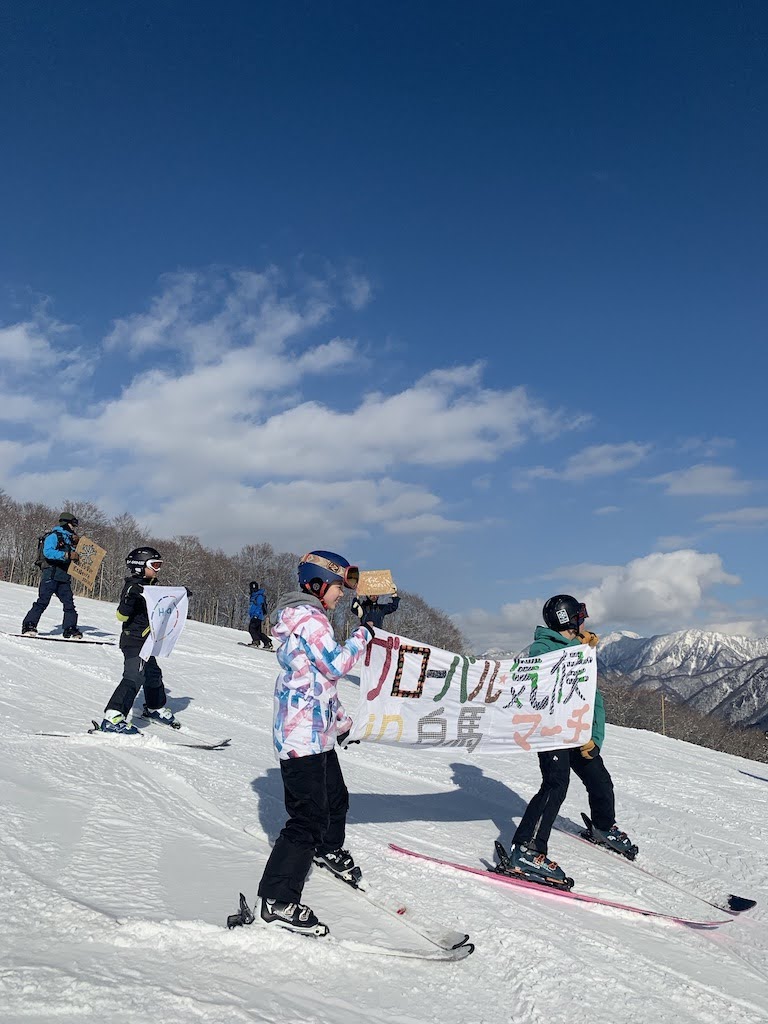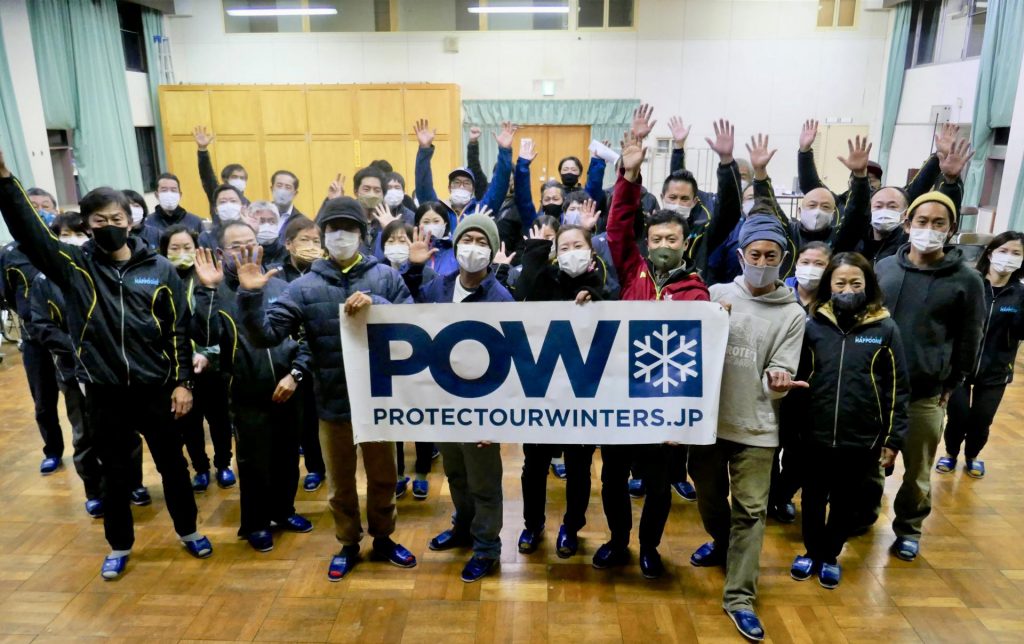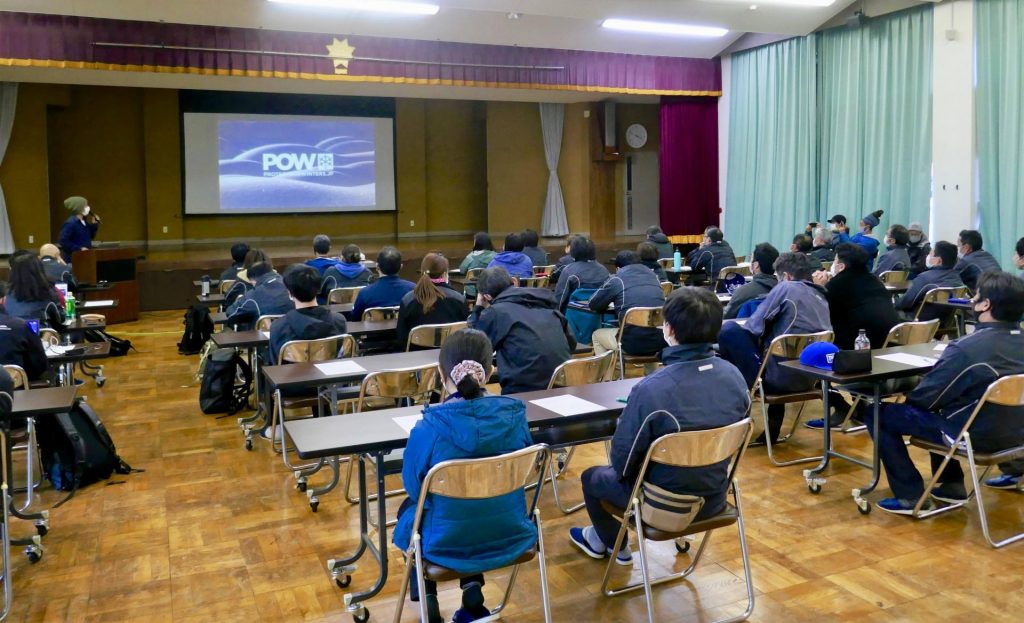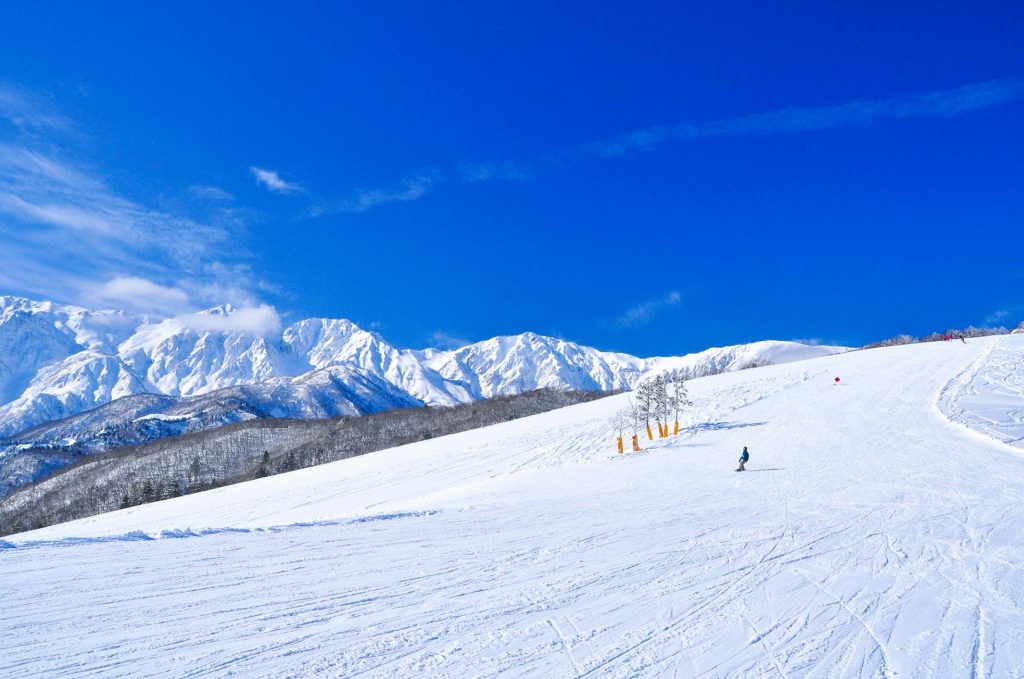Japan’s ski resorts experienced record-low snowfall and higher-than-average temperatures during the 2015-16 season. Hakuba’s (321 centimeters) was well below their 11-meter average and 80-year-old locals had never seen such little snowfall. For Hakuba-based snowboarder and environmentalist Goro Komatsu, it was a wake-up call.

Born and raised in Niseko, Hokkaido, Komatsu started skiing when he was four years old. In the late ’80s, the 12-year-old followed his father to Whistler, Canada where he was first introduced to snowboarding.
“Snowboarding had yet to come to Japan, so it was my first time seeing people snowboard,” remembers Komatsu. “I was already skateboarding, so it was a pretty quick transition.”
Three years later Komatsu was riding professionally. He made friends with indigenous people in Canada and listened to their stories, particularly about land preservation. One person in particular was campaigning against ski resort development infringing on indigenous land.
“Their land is technically protected under federal law, but the organizations and companies trying to make new resorts are working under province-level rules, so there are loopholes. There are many environmental issues as a result of mass development. The country wants more, newer resorts, even today,” says Komatsu. “I always thought having new ski resorts would be fun, but I was shocked to learn about the environmental costs, and I wanted to protect the mountains more.”
Komatsu has now been an advocate for nature conservation for more than two decades and regularly speaks and writes about environmentalism. He moved back to Japan, choosing to live in Omachi, near Hakuba, where he has been based for the past 16 years with his wife and three children. Apart from riding professionally, he also builds snow parks, is a judge on Freeride World Tour Hakuba and hosts events for yuki-ita (handmade bindingless snowboards).
“I always wanted to ride the mountains in Nagano,” recalls Komatsu. “Nagano’s mountains are gnarly—really steep and pretty dangerous. I wanted to ride here while still in my 30s and 40s…maybe when I’m in my 50s I’ll move back to Hokkaido,” he laughs.

In 2018, he launched the Japan chapter of Protect our Winters, a non-profit organization founded by Jeremy Jones focused on climate change legislation. During Japan’s bubble economy in the ’80s, numerous ski resorts popped up around the country. In recent years, climate change and people flocking to bigger ski resorts have forced many smaller resorts to shut down while some existing resorts still operate the same way they did 40 years ago.
Compared to his neighbors, Komatsu has lived in the Hakuba area for a relatively short time, but he’s already seen the impacts of climate change.
“My kids learned to ice skate on this outdoor skating rink nearby, but the last few years it’s been too warm,” says Komatsu. “I also heard people went ice fishing back in the ‘70s at a lake nearby, but the lake doesn’t ice over anymore.”
Protect our Winters Japan works in three phases. The first is awareness about what they do and why preserving the environment is important.They have more than twenty pro skiers and snowboarders as ambassadors and people can donate to the non-profit directly through their website.

The second step is education. POW Japan holds workshops and classes at local schools, businesses and ski resorts to educate the public on what they can do to help.
“We try to make the workshops fun, but it honestly involves sharing a lot of data, so I thought school kids wouldn’t be too interested in it,” says Komatsu. “I was surprised they were so attentive; I think it’s because they know it’s going to affect their future directly.

The third step is taking action. Currently, POW Japan helps ski resorts, mainly in Hakuba, to operate more sustainably. Some of these resorts are running 30% on renewable energy. Hakuba Iwatake Snow Field is aiming for a 100% sustainably run park using renewable energy. They don’t have vending machines; instead they encourage people to bring their own water bottles.
“As snowboarders and skiers, we all know—and take for granted—what we do is possible because of nature,” says Komatsu. “I want us to keep enjoying nature and do what needs to be done to protect our winters.”




